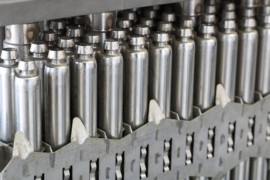Despite the challenges posed by the war in Ukraine and the subsequent energy crisis, urban heating and cooling systems in Europe have demonstrated resilience, maintaining a stable market share and providing about 13 % of the final energy used for space and water heating in the residential, service, and industrial sectors. The “DHC Market Outlook 2024” report, published by Euroheat & Power and unveiled at the EHP 2024 Congress in Rotterdam, highlights these findings.
Niels Fuglsang, a member of the European Parliament, emphasized that ensuring stable and reliable heating and cooling for European citizens would benefit not only climate goals but also Europe’s energy independence from unreliable third-party states, thereby reducing energy prices for citizens and businesses. In 2022, renewable energies and waste heat accounted for 42.6 % of the energy mix for district heating, and urban cooling systems saw an 8 % increase in sales, with Spain standing out for its ambitious policies.
However, the report highlights critical obstacles such as the lack of a level playing field and economic incentives to switch from fossil fuel-based heating to clean urban heating solutions. In 2023, despite the drop in wholesale and retail gas prices, pre-crisis market fundamentals hindered the necessary deployment of clean heating solutions. The report calls for robust regulatory frameworks and financing mechanisms to support urban heating projects, while stressing the importance of training a new generation of professionals to ensure the sector’s growth and green transition.







